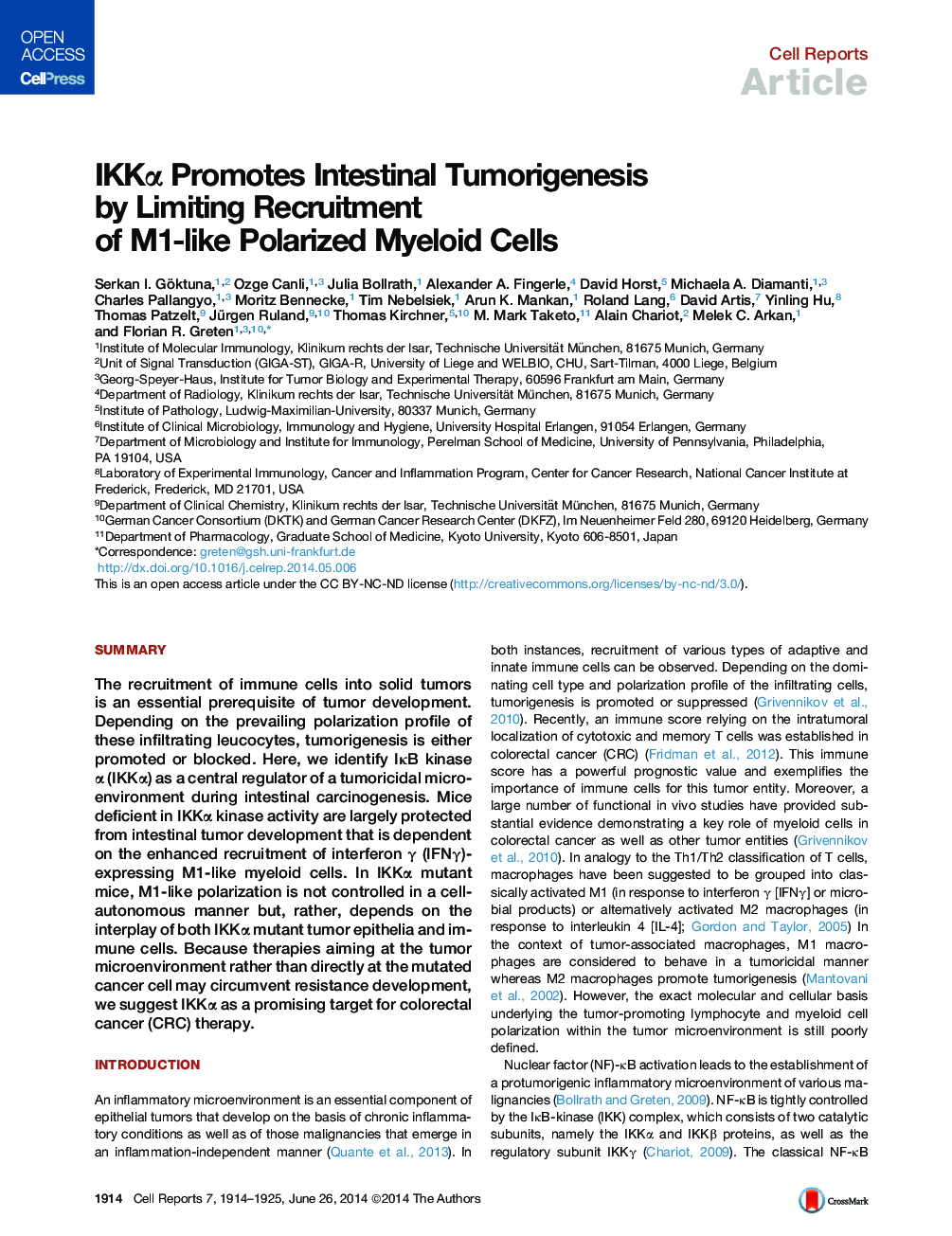| Article ID | Journal | Published Year | Pages | File Type |
|---|---|---|---|---|
| 2041334 | Cell Reports | 2014 | 12 Pages |
•Intestinal tumorigenesis is suppressed in IKKα kinase mutant mice•Improved survival depends upon elevated IFNγ•Myeloid cells, rather than T or NK cells, are the source of IFNγ•Polarization of myeloid cells depends on interplay between tumor and immune cells
SummaryThe recruitment of immune cells into solid tumors is an essential prerequisite of tumor development. Depending on the prevailing polarization profile of these infiltrating leucocytes, tumorigenesis is either promoted or blocked. Here, we identify IκB kinase α (IKKα) as a central regulator of a tumoricidal microenvironment during intestinal carcinogenesis. Mice deficient in IKKα kinase activity are largely protected from intestinal tumor development that is dependent on the enhanced recruitment of interferon γ (IFNγ)-expressing M1-like myeloid cells. In IKKα mutant mice, M1-like polarization is not controlled in a cell-autonomous manner but, rather, depends on the interplay of both IKKα mutant tumor epithelia and immune cells. Because therapies aiming at the tumor microenvironment rather than directly at the mutated cancer cell may circumvent resistance development, we suggest IKKα as a promising target for colorectal cancer (CRC) therapy.
Graphical AbstractFigure optionsDownload full-size imageDownload as PowerPoint slide
